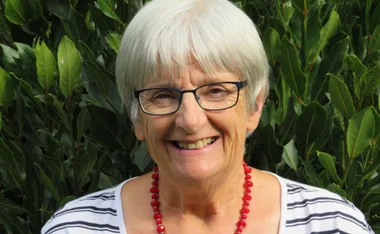The use of plants as medicines is steeped in thousands of years of tradition and can be found in all societies in every part of the world. In countries such as China or India traditional healing therapies are used by up to 60 per cent of the population as primary treatments. What is Western Herbal Medicine? Herbal medicine, or herbalism, is the use of plants as medicines to treat illness or disease. It most often forms the basis of naturopathic medicine, although it is also practised in its own right. Herbal medicine is based on the principle of holistic healing. Rather than simply treating the symptoms of an illness, a herbalist will look deeper to find the causes. Herbs are used to encourage the body’s natural healing process by assisting with the elimination of toxins, and by revitalising the organs and body systems. In Australia, the majority of herbal medicines are made by commercial companies and sold over the counter in tablet or liquid form, which are then blended into tailored prescriptions by qualified herbalists. Each product must be registered with the Therapeutic Goods Administration and only accredited practitioners can buy liquids for blending and dispensing. More traditional ways of administering herbal medicines include: as a tea, as a steam inhalation or as a decoction (a medicinal liquid made from boiling the tough part of the plant). Treatment On your first appointment, the herbalist will try to gain an understanding of the factors in your life that may be affecting your health. He or she may ask you to fill out a questionnaire about your medical history, family background, occupation, diet and exercise, bowel habits, intake of substances such as caffeine, alcohol or nicotine, stress factors and, of course, your current symptoms. The herbalist may also check your hair, skin, nails or tongue for signs of illness or deficiency. You may also be referred for diagnostic tests (such as blood or urine analysis), if necessary. Once armed with the necessary information, your herbalist will most likely prepare a tailored prescription for you by blending five or six liquid remedies in one bottle. Each herb is chosen carefully to meet your most pressing needs. It will usually need to be taken two or three times daily with water or juice. Your herbalist may also recommend changes to your diet, strategies to cope with stress, or certain vitamins or supplements to accompany your prescription. You could expect an initial appointment with a herbalist to last about an hour. Follow-up appointments usually last about half an hour. Origins Written records detailing the healing power of plants go back to the ancient civilisations of China (2500 BC), India (2500 BC) and Egypt (1700 BC). Western herbal medicine can most likely trace its roots to the writings of the Greek physician Hippocrates (circa 400 BC), who categorised the particular health-giving qualities of all foods and herbs. By about 170 AD, the Roman court physician Galen added to Hippocrates’ ideas by documenting complex herbal remedies, which became known as the Galenical Principles. Benefits Herbalists say their treatments can be used for a wide range of conditions. They may be particularly helpful for skin conditions, reproductive problems, chronic fatigue syndrome and digestive problems. Herbalists say their treatments are gentle enough to be used alongside orthodox medicines and that using a low-level herbal remedy can often help to gradually reduce reliance on other medicines. A good example of this is the use of herbal medicine to slowly decrease the need for anti-inflammatory drugs used to relieve the symptoms of arthritis. Cautions Avoid self-diagnosing and self-prescribing – you could be doing yourself more harm than good. Herbal medicines can cause adverse reactions if you do not follow dosage instructions. Always consult a qualified herbalist for advice. Herbal medicines can react with other drugs. Always keep your herbalist and your doctor in the picture about everything you are taking. You should be particularly cautious if you are taking blood-pressure medication, hormonal therapies or anti-depressants.
Home Page 5515
Western herbal medicine
The use of plants as medicines is steeped in thousands of years of tradition and can be found in all societies in every part of the world. In countries such as China or India traditional healing therapies are used by up to 60 per cent of the population as primary treatments.














































